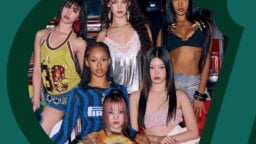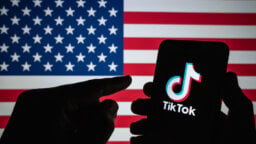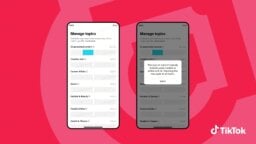TikTok is testing a feature currently called ‘AI Song’ on its platform that uses a large language model to power lyric generation prompted by text inputs.
As first reported by The Verge, the new tool was spotted by users on the ByteDance-owned social media platform over the past week.
The tool doesn’t generate music, but rather lyrics, using an LLM called BLOOM, which stands for BigScience Large Open-science Open-access Multilingual Language Model.
MBW understands that the music paired with those lyrics was produced in-house at TikTok.
According to the research paper from BigScience introducing BLOOM in November 2022, the LLM is a “176 billion parameter language model trained on 46 natural languages and 13 programming languages”.
BigScience is described as “an open science project composed of hundreds of researchers around the world”.
The paper adds that BLOOM “was developed and released by a collaboration of hundreds of researchers” and that “the compute for training BLOOM was provided through a French public grant from GENCI and IDRIS, leveraging IDRIS’ Jean Zay supercomputer“.
The dataset used to train BLOOM is called the ROOTS Corpus, described in a research paper from BigScience as a 1.6TB Composite Multilingual Dataset.
BigScience says in that paper that one of its “founding goals” was to train an “open-access, massively multilingual LLM, comparable in scale” to OpenAI’s GPT-3 – “yet trained on a better documented and more representative multilingual dataset”.
TikTok’s latest test follows the platform’s launch last year of a free-to-use music production app called Ripple. The app has two key features: a ‘Melody to Song’ generator and a virtual recording studio.
The Melody to Song feature launched last year as part of Ripple lets users sing or hum a melody directly into the app, and Ripple will then expand the melody by generating an instrumental accompaniment in a variety of different genres.
According to ByteDance, the AI model was trained on music licensed to or owned by the company.
The company told MBW at the time that it was not trained on major record company music. MBW understands that Bytedance also used music produced in-house to train the model.
ByteDance said at the time that “We are committed to respecting both the rights of our artist and rightsholder partners and those of our creator users, while protecting their works from abuse on our platforms”.
In 2022, MBW broke the news that TikTok and parent company ByteDance were hiring for a number of highly-skilled machine learning and AI music creation specialists in both the US and China.
The hiring spree appeared to mark a doubling down on ByteDance’s AI-powered music-making ambitions, following its acquisition in July 2019, of Jukedeck, a UK-based AI Music startup that specialized in creating royalty-free music for user-generated online videos.
MBW also noted back in 2022 that ByteDance had recently launched a machine-learning-driven music-making app called Mawf, which analyzes incoming audio signals and then “re-renders” those signals using what it says is machine-learned models of musical instruments.
Additionally, according to a report in 2022 from news site Tech Planet, ByteDance had also recently launched a music creation app in China called ‘Sponge Band’.
According to Tech Planet’s report, this recording and music editing app also features AI tools, and notes that it is particularly “helpful for users who want to further improve audio effects and background music for short videos”.
MBW understands that all three apps, Mawf, Spongeband and Ripple are all standalone apps.Music Business Worldwide





